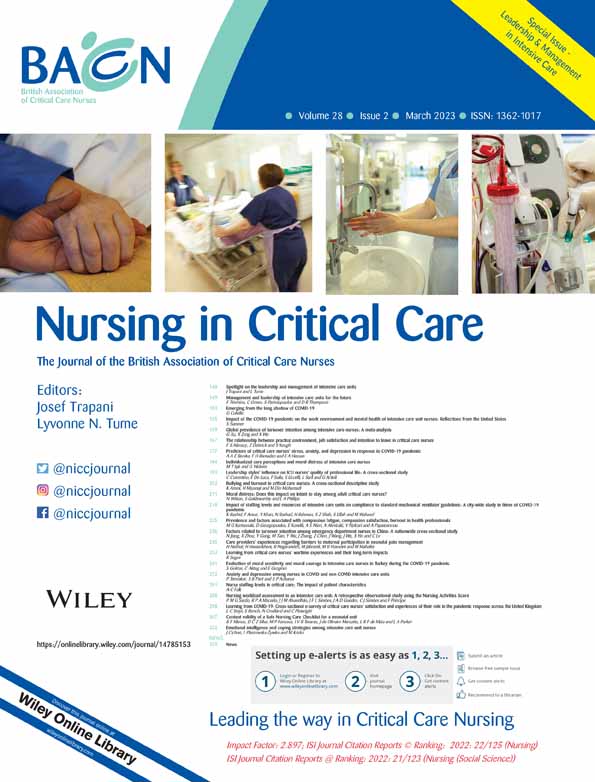Spotlight on the leadership and management of intensive care units
Josef Trapani and Lyvonne Tume are Co-Editors, Nursing in Critical Care.
This issue of Nursing in Critical Care casts a light on the leadership and management of intensive care units (ICUs). To set the scene for this special issue, we are very honoured to include two thought-provoking guest editorials and a critical commentary from eminent critical researchers and practitioners. The editorials by Fiona Timmins and her colleagues and Gillian Colville respectively provide insightful comments on these papers' contribution from two different perspectives: the commitment of nurses and nursing to the current and future development of nursing leadership and management in ICUs1 and the importance of staff well-being in management considerations.2 The critical commentary by Sarah Sumner reflects on the impact of the COVID-19 pandemic on the work environment and mental health of ICU nurses.3
The research and review papers in this special collection tackle various facets of intensive care leadership and management, ranging from ‘classic’ topics such as turnover, intent to stay, staffing levels, workload, burnout, safety, job satisfaction and leadership styles to factors that are gaining attention in recent decades, such as moral distress, compassion fatigue, compassion satisfaction, moral sensitivity and courage, relatives' participation in care and emotional intelligence. As expected, the past and future impact of the COVID-19 pandemic features prominently in this issue.
The issue also showcases the cross-sectional survey as a very popular research design in investigating these topics. Nonetheless, the issue also includes a retrospective cohort study, literature reviews and an instrument construction/validation study. As usual, this special issue offers an international perspective with contributions from the United Kingdom, Italy, Greece, Iran, China, Turkey, the United States, Egypt, Brazil, Spain and Poland.
We trust that you will enjoy reading, learning from and being inspired by the papers in this special issue, as much as we did while compiling it.




